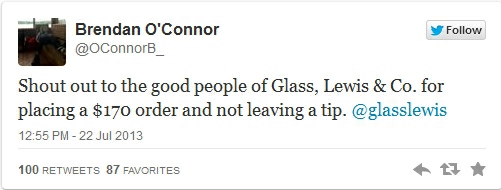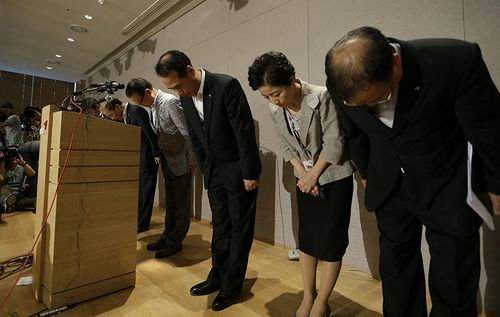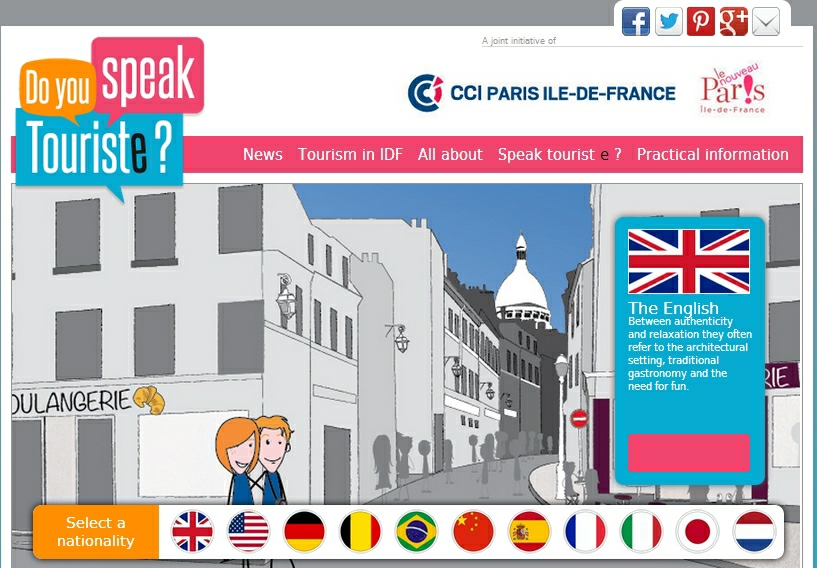Fast-Food Workers Strike over Pay
The fast-food industry has been under fire for paying low wages. The website "Fast Food Forward," asks people to sign a petition:
"We can't survive on $7.25!
"In America, people who work hard should be able to afford basic necessities like groceries, rent, childcare and transportation.
"While fast food corporations reap the benefits of record profits, workers are barely getting by-many are forced to be on public assistance despite having a job.
"Raising pay for fast food workers will benefit workers and strengthen the overall economy."
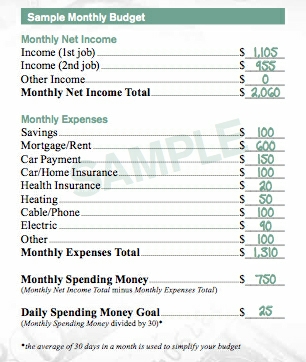 In July, McDonald's mistakenly publishing Practical Money Skills, a budgeting journal for employees. It was a nice idea, but the tool has made obvious that employees have a tough time living on McDonald's wages alone. A Mother Jones article criticized the advice:
In July, McDonald's mistakenly publishing Practical Money Skills, a budgeting journal for employees. It was a nice idea, but the tool has made obvious that employees have a tough time living on McDonald's wages alone. A Mother Jones article criticized the advice:
"The most practical tip: In order to obtain a living wage working at McDonald's 35 hours per week (monthly income: $1,105), get a second job. Least practical facet: as MSNBC's Maria Perez notes, it "leaves out necessary expenditures like food, child care, clothes and gas."
Another Mother Jones writer asks that we "give McDonald's a break." The row for "Income (2nd job)" assumes a dual-income family with two working adults.
A New York Times opinion from The Executive Board explains how the minimum wage has lagged behind inflation:
"As measured by the federal minimum wage, currently $7.25 an hour, low-paid work in America is lower paid today than at any time in modern memory. If the minimum wage had kept pace with inflation or average wages over the past nearly 50 years, it would be about $10 an hour; if it had kept pace with the growth in average labor productivity, it would be about $17 an hour."
Fast-food employees are paid $9, on average.
The New York Times piece also critcizes executive pay:
"At some point, as strikes continue, well-paid executives in low-wage industries will have to confront the fact that low worker pay is at odds with their companies' upbeat corporate images and their self-images as top executives. (The chief executives of McDonald's and Yum Brands, which owns Taco Bell, Pizza Hut and KFC, are among the nation's highest-paid corporate leaders.)"
An International Business Times infographic summarizes some of the data well:
A Bloomberg Businessweek article reported that wage increases will hurt already low fast-food margins. Profit margins are particularly slim for franchised restaurants, which set their own pay rates. The article compares company-owned Burger Kings, which can garner margins of over 10%, to a franchised store, which may operate at only 2%. For franchisees, the cost of higher wages may not easily be offset by raising menu prices. However, the writer concedes,
"Much of the public debate, however, is focused on raising wages to considerably less than the much-hyped $15 an hour. Wicks-Lim and 99 other economists signed a petition in July to raise the federal minimum wage to $10.50. They say the increase in costs for restaurants would equal about 2.7 percent of sales. Wicks-Lim adds that companies could then make up the difference through price increases (say, a nickel more for a burger), reduced employee turnover, productivity gains, and slower raises for the highest-paid employees."
Discussion Starters:
- Find research to support both sides of the issue. What credible sources do you find? What are the major arguments on each side?
- What examples of fallacies do you find in the arguments?
- What's your view? Should fast-food restaurants pay more? How much?
Study Finds "Likes" Could Encourage Positive Decisions
A study in the Science journal found that when people liked an article, others are 32% more likely to approve of the article. Published as "Social Influence Bias: A Randomized Experiment," the study looked at data from 100,000 articles from a web site that aggregates social news. Web site administrators randomly assigned initial positive and negative ratings, which caused a "herding effect"-in this case, "jumping on the bandwagon" with positive reviews, although writing and reporting in that article were not necessarily any better than in any other articles.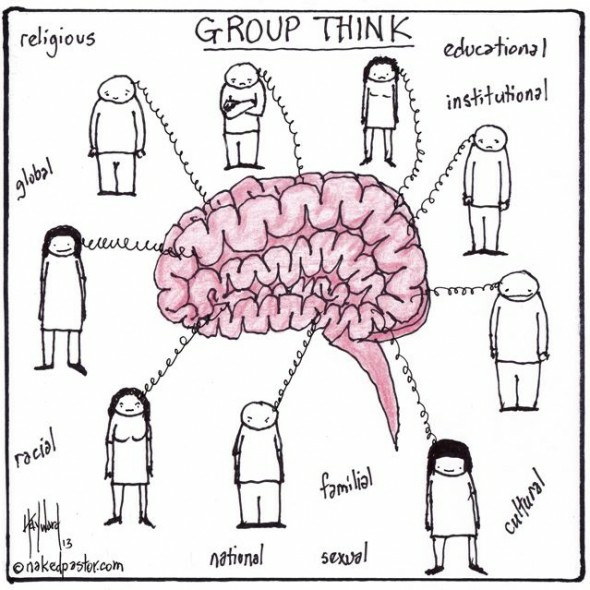
However, the study found, surprisingly, that the opposite didn't hold true; rather, when people disliked an article, others commented to correct the initial review. In other words, people defended articles with initial negative comments.
A New York Times article about the story describes the effect:
"The first person reading the comment was 32 percent more likely to give it an up vote if it had been already given a fake positive score. There was no change in the likelihood of subsequent negative votes. Over time, the comments with the artificial initial up vote ended with scores 25 percent higher than those in the control group."
The authors warn of social biases in many types of decision making.
Discussion Starters:
- In what ways do you see evidence of this study in your own experience on social networking sites or ratings sites?
- What implications from this study can you see for how TripAdvisor works? What are the potential dangers of the herding effect?
Food Truck Employee Gets Fired for a Tweet
Unhappy about not receiving a tip, a food truck employee let loose on Twitter:
Employees at Glass Lewis & Company, a consultancy specializing in corporate governance, ordered $170 worth of grilled cheese sandwiches and milkshakes but didn't leave a tip. Brendan O'Connor, the Milk Truck employee, chronicled the incident on his blog:
"I was making sandwiches, another worker took the order and a third made the milkshakes and watched the grills. A line grew while we worked, and we had to tell other customers that their lunch orders would take longer than usual. They paid; I asked my co-worker who was dealing with the money how much of a tip they'd left. They had left actually no tip at all. (They had paid with a card so we checked the cash tips to see if there'd been a bump. There hadn't.)
"I asked some of the group as they were picking up their orders if they had intended to not tip. They hemmed and hawed and walked away.
"Well. I could have not said anything. I could have made it a subtweet. I probably should have made it a subtweet. But I didn't, because of some misguided notions about having 'the courage of your convictions,' or whatever."
O'Connor explains that he was fired by the owner after someone from Glass Lewis complained about being "tip-shamed." O'Connor's argument is that his employer uses social media feedback to monitor employees' performance, so why shouldn't he use social media to "advocate for a more civil exchange between worker and consumer?"
Well, no companies want their customers embarrassed publicly, and many have policies in place to this effect. Milk Truck managed to restore its credibility with an apology tweet, accepted by Glass Lewis:

But Twitter is still abuzz with the ethics of the situation. Did Milk Truck do the right thing by terminating O'Connor? Was O'Connor's tweet justified? Does Glass Lewis owe an apology? What's your view?
Mercedes Removes Weird "Service Song" Video
AdWeek called Mercedes-Benz's "Service Song" video "Weird, Cheesy, Suggestive, and Embarrassing." The video here is a bootleg copy; the company has removed the official version after enough ridicule. (Download Mercedes Service Song.)
The beginning lyrics follow:
"I like them to be strong, that they can catch me when I skid/Like them to turn me on, I thought that some of them did/But just as I needed a helping hand, so many men were 'out of service,' not like you … You only give your best, won't stop until I smile."
AdWeek argues that the video is "downmarket" for the luxury brand. It does seem kitschy: the hokey images, 1980s-style song (although catchy!)...
The AdWeek writer's prediction came to pass: "I give it a week before it's gone from YouTube."
Discussion Starters:
- What's your assessment of the Service Song video? Do you agree with AdWeek's perspective?
- Did the company do the right thing by taking down the video? What are the arguments for and against this move?
Texas Six Flags Responds to Woman's Death
A woman died on The Texas Giant, a roller coaster at Six Flags Over Texas in Arlington, and the company has responded. Rosa Ayala-Goana's lap bar either broke or came loose, and she fell to her death. Witnesses describe a terrible scene, with her son, who was at her side, screaming for help.
Six Flags representative Sharon Parker issued this statement and tweeted an apology:
"We are deeply saddened to share that earlier this evening an adult woman died in the park while on the Texas Giant. Park medical staff and local paramedics responded immediately. Since the safety of our guests and employees is our number one priority, the ride has been closed pending further investigation. Our thoughts and prayers are with the family and friends during this difficult time."

The next day, Six Flags issued another statement:
"We are committed to determining the cause of this tragic accident and will utilize every resource throughout this process. It would be a disservice to the family to speculate regarding what transpired. When we have new information to provide, we will do so. Our thoughts, prayers and full support remain with the family."
The Texas Giant is the world's tallest steel-hybrid roller coaster. According to a local CBS news agency, 14 injuries on the roller coaster have been reported since 2008, but most were minor.
Discussion Starters:
- Assess the two statements issued by Six Flags. What works well, and what, if anything, can be improved?
- Rewrite both statements, using your own words and perhaps more natural word choices. Share your drafts with a partner to compare each.
Panera Apologizes to Farmers
Panera's campaign to tout the benefits of its chicken inadvertently offended an important, vocal group: farmers. Panera posted a video and started the Twitter hashtag #EZChicken to promote its chicken, which is produced without antibiotics.
The description on YouTube transcribes the video:
"At Panera, we decided a long time ago to avoid the easy road and switch to Antibiotic-free chicken. That decision set a lot of things in motion, so now it's not just chickens raised this way, it is more ingredients you can trust, which has taught us a lesson. Sometimes, what you think is the harder road, turns out to be the only one worth being on. Panera Bread. Live Consciously, Eat Deliciously."
Dairy Carrie, a farmer with an active blog, chronicled Panera's campaign, including several memes showing chickens as pills.
Farmers didn't appreciate Panera's implication that they take the easy way out. Dairy Carries writes on her blog,
"But wait you say, Panera isn't calling all farmers and ranchers lazy! They are just calling the ones that use antibiotics lazy! I used antibiotics to help a sick calf get better last week, my friends the organic farmers had a cow with pneumonia and they gave that cow antibiotics to make her better. They had to sell her, but she lived. Does that mean we are lazy? Is it lazy to take care of our sick animals?"
A company representative did call Dairy Carrie, and a representative apologized to others on Twitter:
Discussion Starters:
- Explain the disconnect between Panera's promotion and farmers' perspective. Describe the view from each group.
- Should Panera have predicted this reaction from farmers? How so or why not? Should the company have avoided the campaign or have approached it in another way?
Marriott Communicates During Fire Alarm
No one wants to be woken up on vacation for a fire alarm, but the Boulder Marriott staff handled it well. An alarm sounded on Sunday at 6:45 a.m. at the Boulder, CO, Marriott, where I was staying after officiating a friend's wedding the previous night. Guests trotted out in T-shirts and shorts, some carrying all of their wordly belongings; others leaving all behind and hoping for the best.
On our way out, a staff member was standing by, telling us, yes, we really needed to evacuate and showing us the way to the stairwell. (This is a five-story Marriott, and Boulder visitors seemed to be in good shape.)
We stood around for a few minutes, held loved ones, yawned, and watched a teenager pretend-sleep on the ground.
When the alarm stopped, clearly a false one, we were shuttled back in and handed coupons for free Starbucks coffee in the lobby (grande, decaf, non-fat mocha for me). By 9:30, we had this apology letter under the guestroom door (download full-sized letter):
In addition to this almost-immediate letter, the hotel's GM sent the following email the next day:
Dear Valued Guest,
On behalf of our entire staff I want to personally apologize for the disturbance this morning with the fire alarm. The safety and security of our guests is always our #1 priority and we are happy to report all was safe in the building. That being said our next greatest mission is for our guests to enjoy a comfortable and peaceful stay which unfortunately this morning's circumstances made that difficult, we apologize again.
As a sincere gesture of our disappointment we will be crediting your Marriott Rewards account an additional 2,000 Marriott Rewards points. We appreciate your business and loyalty to Marriott. Please do not hesitate to contact me if you have any questions or concerns. We look forward to the opportunity of being your lodging choice for future visits to the Boulder area.
Sincerely,
Chad
CHAD CUDDY I GENERAL MANAGER
BOULDER MARRIOTT l JW's RESTAURANT & LOUNGE
P: 303 448-6629
Discussion Starters:
- From this description, what did the Marriott staff do well in this situation? What, if anything, should they have done differently?
- Assess the apology letter: what works well, and what should most definitely be changed in the future?
- Assess the email: if you received this letter, how would it make you feel?
Tufts' "#YOLO" Question: Creative or Offensive?
Tufts is engaging the Class of 2018 by asking prospective students to include a supplementalwriting essay to the common application. Students are asked to respond to questions 1 and 2, and can select one option from question 3:
- Which aspects of Tufts' curriculum or undergraduate experience prompt your application? In short: "Why Tufts?" (50–100 words)
- There is a Quaker saying: "Let your life speak." Describe the environment in which you were raised – your family, home, neighborhood or community – and how it influenced the person you are today. (200–250 words)
- Now we'd like to know a little bit more about you. Please respond to one of the following six questions:
A) "If you do not tell the truth about yourself you cannot tell it about other people," Virginia Woolf. Respond to Woolf's quote in the medium of your choice: prose, video (one minute), blog, digital portfolio, slam poetry... For media other than writing, please share a link (video can be submitted via YouTube but we recommend using a privacy setting) that is easily accessible. .
B) What makes you happy?
C) Sports, science and society are filled with rules, theories and laws like the Ninth Commandment, PV=nRT, Occam's Razor, and The Law of Diminishing Returns. Three strikes and you're out. "I" before "E" except after "C." Warm air rises. Pick one and explain its significance to you.
D) Celebrate your nerdy side.
E) The ancient Romans started it when they coined the phrase "Carpe diem." Jonathan Larson proclaimed "No day but today!" and most recently, Drake explained You Only Live Once (YOLO). Have you ever seized the day? Lived like there was no tomorrow? Or perhaps you plan to shout YOLO while jumping into something in the future. What does #YOLO mean to you?
F) Boston is famous for its teams, its fans and its rivalries. Whether you are goaltending or cheering from the stands, celebrate the role sports plays in your life.
Not everyone appreciated the forward-thinking question:

One alum of the school explains why he's offended by the question (excerpt here):
The college admissions process is the biggest freakshow of self-aggrandizement and hapless people pleasing in modern American society. On the one hand Drake is exceedingly worthy of being name-dropped in an application essay because his claim to legitimacy, at least in the early part of his career, was the fact that he did whatever it took to make people like him no matter if it made him feel hollow inside. The general internet consensus on the #YOLO question seems to be, "Drake is stupid, Tufts is stupid, kids are stupid, America is stupid." While I agree with each of these conclusions taken separately, I'm also legitimately angered by their intersection. Most people are mad at Tufts for the #YOLO question because it's a cornball "cool dad" appeal to applicants. I'm mad because Tufts isn't being criticized for admission and administrative practices that deserve scorn, practices that are a toxic mixture of profiteering and systemic racism and classism that are symptomatic of higher education as gestalt. Since we live in a country where it's pretty much legal to stalk, assault and kill a black kid walking to his dad's house, I feel a pressing need to call Tufts, my alma mater and cool dad, on its recent history.
Discussion Starters:
- Regardless of your expected graduation year, answer the prompt. What do you think would be a good response to the admissions question?
- What's your opinion of the controversy? Do you find the question creative, offensive, stupid, or something else?
Visualization of Email Sign-Offs
Here's a cute (not much else) visualization of what your email closing may mean. Although compiled in 2007, this just made it to Twitter.
The graphic is an interesting way of categorizing email endings. "Self-conscious" implies an insecurity, perhaps as well as a lack of familiarity, so we may see some overlap here. Maybe "formal" and "informal" would be a better continuum. To me, this language has less judgement (but, then again, I'm self-conscious).
Discussion Starters:
- What's your assessment of the visualization? Do you agree with the author's characterizations of email closings?
- Look at 25 of your most recent emails, and plot them on a similar chart. What do you find?
Interns: Don't Make Up Fake, Racist Names
Asiana Airlines is suing a television station for mocking its crew on the flight that went down in San Francisco. A summer intern at the National Transportation Safety Board (NTSB) verified the ridiculous Asian names, which made it on the air via KTVU-TV in Oakland, CA.
Vice president and general manager of the station, Tom Raponi, apologized on air:
"We sincerely regret the error and took immediate action to apologize, both in the newscast where the mistake occurred, as well as on our website and social media sites. Nothing is more important to us than having the highest level of accuracy and integrity, and we are reviewing our procedures to ensure this type of error does not happen again."
KTVU also wrote an apology on its website, accepting full responsibility for not sounding out the names and for not asking the position of the person at NTSB.
The NTSB issued this statement:
NTSB Press Release
National Transportation Safety Board
Office of Public Affairs
NTSB statement on erroneous confirmation of crew names
July 12
The National Transportation Safety Board apologizes for inaccurate and offensive names that were mistakenly confirmed as those of the pilots of Asiana flight 214, which crashed at San Francisco International Airport on July 6.
Earlier today, in response to an inquiry from a media outlet, a summer intern acted outside the scope of his authority when he erroneously confirmed the names of the flight crew on the aircraft.
The NTSB does not release or confirm the names of crewmembers or people involved in transportation accidents to the media. We work hard to ensure that only appropriate factual information regarding an investigation is released and deeply regret today's incident.
Appropriate actions will be taken to ensure that such a serious error is not repeated.
Office of Public Affairs
490 L'Enfant Plaza, SW
Washington, DC 20594
(202) 314-6100
Kelly Nantel
kelly.nantel@ntsb.gov
Discussion Starters:
- Imagine the news-reporting process at the TV station. How could this have happened?
- The NTSB fired the intern. What, if any, other action should the agency take?
Embarrassing Typos in School Book List
A Long Island school district published its summer reading list riddled with typos. The Hempstead Union Free School District suggested that students read "The Great Gypsy" among other remixed classics. Written for all grade levels in the district, the list includes 30 errors according to one count.

District spokesperson Alicia Figueras said, "I would like to announce that disciplinary action has been taken against the personnel who made the unfortunate clerical errors while compiling the list."
Although Figueras described the incident as an isolated event, the errors are part of bigger problems, according to Newsday:
"Hempstead consistently has been one of Long Island's worst-performing school systems. Its 2011-12 graduation rate of 38 percent was the lowest of the Island's 124 public school districts."
Discussion Starters:
- What action is appropriate for the employee who made the errors? Who else, if anyone, should be held responsible, and how?
- Read the entire document. How many errors do you find?
Stereotyping at Target
 Employees at a Target facility in California have sued the company for discrimination. The employees claim that managers used racial slurs when communicating with them and that racial stereotyping appeared in a document used for training.
Employees at a Target facility in California have sued the company for discrimination. The employees claim that managers used racial slurs when communicating with them and that racial stereotyping appeared in a document used for training.
In the document, "Organization Effectiveness, Employee and Labor Relations Multi-Cultural Tips," the company reminded employees to avoid stereotypes of ethnic groups, such as Hispanics. The trouble is, the document itself portrayed stereotypes:
a. Food: not everyone eats tacos and burritos;
b. Music: not everyone dances to salsa;
c. Dress: not everyone wears a sombrero;
d. Mexicans (lower education level, some may be undocumented);
e. Cubans (Political refugees, legal status, higher education level); and
f. They may say 'OK, OK' and pretend to understand, when they do not, just to save face.
According to Target spokesperson Molly Snyder, the document was not used in a formal training program, but she did admit that it was used "during conversations at a company distribution center," according to The Huffington Post.
On behalf of the company, Snyder said, "It is never Target's intent to offend our team members or guests, and we apologize." She also said, "The content of the document referenced is not representative of who Target is. We strive at all times to be a place where our team and guests feel welcome, valued, and respected."
In the complaint, employees accuse their primarily Caucasian managers of using racial slurs when speaking to Hispanic employees. Examples from Courthouse News Service include "Only a 'wetback' can work this hard," "You got to be Mexican to work like this," and "What the hell, I'm already sweating like a Mexican."
This reminds me of another recent story: Tactile Brazilians and Other French Stereotypes.
Discussion Starters:
- What was Target's motivation for creating the document? Why did it fail?
- What could the company have done differently to achieve its objective? Still, what are the risks with the approaches you considered?
Asiana Airlines' Apology and Other Communications
After the Asiana Airlines crash over the weekend that left two dead and many injured, executives are keeping the public informed and are making their apologies. Some of these communications reflect the company's Korean culture.
A Washington Post article describes the board members' "deep, solemn bow" at the end of a news conference in Seoul. Of course, this is an obvious difference in culture from how American executives would behave, but the author explains that the cultural difference is more than just that.
The article reviews the history of businesses such as Asiana Airlines and the importance of trust:
"Part of it has to do with the way South Korea's economy grew: with a heavy guiding hand from the state. The government helped a number of once-small companies consolidate into massive conglomerates known as chaebols, which are often family-run and have since accumulated tremendous political and economic power.
"In some ways, chaebols are a lot like American multinationals: economic behemoths with heavy influence. But, in part due to the way they grew and the state's role in fostering them as national symbols, perhaps as well as some Confucian cultural influence, they operate in some ways like family businesses. And they're treated as such by many employees and by South Korean consumers. According to a 2005 article on chaebols in the Journal of Consumer Psychology, 'Korean consumers have a strong attachment to chaebols with which they associate quality and, in turn, trust,' with the chaebols serving as a kind of extension of Confucian ideals of the family. That means consumer loyalty to the brand but also brand responsibility for the consumer: hence, bowing to ask forgiveness."
The company posted periodic press releases as news about the crash unfolded.
Discussion Starters:
- In addition to the obvious word-wrap issues in the press releases, what word choices, tone, or other aspects of the statements might you attribute to cultural differences?
- Compare this story to the PBS News Hour analyzing cultural communication in the Toyota CEO's news conference in 2010.
Other Airlines' Communication After Crashes
After two plane crashes over the weekend, Should other airlines "tout their safety records?" asked Matt Wilson in a PR Daily article. Although the article cautions airlines, the industry might learn from cruise companies' responses after the Costa Concordia crash in 2012.

Advisors such as Robert Holland of Holland Communication Solutions recommends that airlines avoid promoting their own safety:
"Even if my airline had a stellar safety record, even then it would appear to be gloating in the face of other airlines' problems. I would recommend commenting publicly if asked, however.
"Otherwise it would raise questions or suspicions about what we're trying to hide about our own record. It's important for other airlines to be forthcoming with information if it's requested, but there's nothing to be gained, and perhaps something to be lost, by proactively commenting."
But, after the Costa Concordia cruise disaster, other cruise companies found ways to be respectful of those lost and to reassure customers. Here are three examples of companies' communications to their customers:
Download Celebrity Cruise email
Download Royal Caribbean email
Download Norwegian Cruise email
Discussion Starters:
- If you were a member of American Airlines' management team, would would be your perspective on whether to share your safety records? What considerations would you have if you were the head of Marketing? PR? Customer service? Operations? Legal? How might your opinion differ in each of these roles?
- Imagine that you decide to blog about your company's safety records. Using the cruise companies' letters as a starting point, what would you say to airline customers?
PETA Defends Euthanizing Animals
Proponents of no-kill shelters are appalled that PETA kills animals. People for the Ethical Treatment of Animals, an advocacy group for animal rights known for somewhat aggressive marketing tactics, kills about 2,000 dogs and cats each year at its shelter in Norfolk, VA.
In response to the criticism, the PETA spin machine is working its magic. With the slogan "PETA Saves..." the organization explains its work to rescue animals and reframes the issue. Throughout the country in the past ten years or so, euthanizations have gone down, and adoptions have gone up. PETA is generally behind this policy but says that many no-kill efforts are misguided. PETA also presents itself as a "last resort" shelter, forced to euthanize animals in terrible shape and unlikely to be adopted.
PETA's website points to several ways for people to understand the organization's rationale:
- Why We Euthanize, an explanation (Caution: gruesome pictures)
- A Shelter of Last Resort, an infographic summarizing PETA's work
- No Kill or No Clue? article criticizing some no-kill practices
Discussion Starters:
- In addition to those presented here, find arguments on both sides of this issue. What are the main points of each? Which are the strongest and weakest arguments?
- What's your view of PETA's use of graphic images? Does it help garner support for the organization's goals or detract from the issues?
Clorox Offends Dads
Dads don't like to be compared to dogs. That was one mistake made in a Clorox campaign about new dads:
"Saying 'No-no' is not just for baby. Like dogs or other house pets, new dads are filled with good intentions but lacking the judgment and fine motor skills to execute well."
Among the "6 mistakes new dads make" are putting a baby's clothes on backwards and taking the baby out for a walk in "a cold, brisk, rain-soaked stroller."
After the predictable backlash on social media, Clorox spokesperson Rita Gorenbe explained the post as "a piece of web content written by a freelance humor writer who helps us on a number of projects. ... We have enormous respect for parents, moms and dads, as they make their way through the early years of parenting. We're in new territory with today's modern families and changing family roles and we appreciate all feedback to help us get it right."
The company also posted this message on Facebook, which, so far, received 221 likes and 203 comments.
Too bad Clorox didn't learn from last year's Huggie's ad campaign.
Discussion Starters:
- How do you assess the blog post: funny, insulting, or something else?
- How to you assess the company's response? Compare the spokesperson's statement and the Facebook post. How are they similar and different, and what could explain the discrepancies?
Why Employers Shouldn't Care About Facebook Photos of Drinking
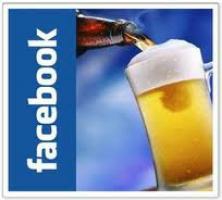 HR and hiring managers are passing up good candidates who post or are tagged in photos of drinking, according to a new study. The study by Stoughton, Thompson, and Meade, "Big Five Personality Traits Reflected in Job Applicants' Social Media Postings," was published in Cyberpsychology, Behavior and Social Networking.
HR and hiring managers are passing up good candidates who post or are tagged in photos of drinking, according to a new study. The study by Stoughton, Thompson, and Meade, "Big Five Personality Traits Reflected in Job Applicants' Social Media Postings," was published in Cyberpsychology, Behavior and Social Networking.
Explaining the rationale for searching for candidates online, co-author Dr. Lori Foster Thompson said, "Companies often scan a job applicant's Facebook profile to see whether there is evidence of drug or alcohol use, believing that such behavior means the applicant is not 'conscientious,' or responsible and self-disciplined." But posting such content is not correlated with conscientiousness. Further, those who post rated highly on extrovert measures, which employers may value.
However, the study warns companies to avoid people who "bad-mouth" or post negative comments about an employer online. People who rated highly on agreeableness and conscientiousness were very unlikely to post such content.
This advice is consistent with a recent Wall Street Journal article, which reported that 44% of employers would not hire someone found to be "badmouthing employers on social media." The author of this article also suggested, "While some employers may be willing to overlook the occasional rowdy photo or off-color tweet, it goes without saying that any post linking a job candidate to illicit activity such as drinking and driving or illegal drugs, or to racist or sexist behavior, won't go over well."
A recent Harris Interactive/Career Builder study showed that 43% of employers have rejected candidates based on their social media posts, and 48% of them did so because "There was info about candidate drinking or using drugs." These employers may want to reconsider their practices.
Discussion Starters:
- What's your view of the study findings? Do you agree with the two main conclusions: that Facebook posts about drinking don't indicate poor job qualifications but that negative posts about employers might be a good reason to disqualify a candidate?
- How, if at all, does this study influence what you will post or how you will handle posts on your Facebook page?
"Flordia" Road Sign
Never hire someone from Arizona to create traffic signs for Florida. That's what the Florida Department of Transportation (FDOT) is saying in response to a sign that misspells Florida-twice. For extra embarrassment to the FDOT, the sign points to the University of Florida.
Local news organization WOKV.com reported the story with the appropriate level of criticism. But WOKV is not flawless either. Here's an excerpt from the article:
"After posting the picture on WOKV.com and Facebook, WOKV News contacted the Florida Dept. or Transportation for comment and their spokesperson, Mike Goldman, says the FDOT had already realized the mistake when the sign was delivered and had left them by the side of the road while they awaited a replacement."
Can you find the two errors (one typo and one punctuation mark)?
Assignment Ideas:
- Spend the next couple of days looking closely at signs around town. Take photos of signs with typos or misused punctuation.
- Try to get one of the signs fixed. Identify the owner and talk to him or her in person or try to get an email address. Report your progress to the rest of the class.
Tactile Brazilians and Other French Stereotypes
The French tourism board is trying to help retailers, restaurateurs, hoteliers, and taxi drivers be more welcoming to visitors. But the "Do You Speak Touriste?" website provides stereotypes that some may find offensive.
According to The Telegraph, the tourism guide (downloadable in French) offers these helpful hints for French business owners (note that the punctuation is European):
The guide informs Parisians that the British "like to be called by their first name", spend an average of 145 euros (£124) per person per day – more than their American counterparts – and eat breakfast from 7.30-8.30am, lunch at 12-1pm and supper at 6-7pm.
They seek a mixture of "authenticity and relaxedness", expect smiling and friendly staff" and appreciate "architecture, traditional gastronomy and the need for a playful (approach to culture)."
The Japanese are the biggest spenders – 186 euros per tourist per day – but need constant reassurance and are "discreet but demanding". "They never complain straight away when they are not satisfied but will criticise once back in their own country."
The Chinese have an "idealised and romantic" view of Paris, and come "above all for luxury shopping."
Brazilians, meanwhile are "easily tactile", expect a "totally poetic experience" and spend more than the British, around 166 euros per day.
Parisians are told that cash-strapped Spaniards are on the "lookout for freebies" and expect you to speak their language, while Italians are delighted if you are nice to their children, like "going on excursions" but are "impatient tourists".
Perhaps the trickiest visitors of all, judging by the guide, are the French themselves, described as "particularly demanding" guests who above all "don't want to be considered as tourists".
Jeanerre Blat, general director of the Paris area tourist board, explained the board's philosophy:
"The aim is to fight against the poor reputation for welcome in Paris and the Paris area. You don't welcome a Japanese tourist the same way as an Italian one. There are codes to take into account, so you have to adapt."
Discussion Starters:
- What's the value of stereotyping? In other words, what's the value of this guidance for French business owners?
- Looking at the examples of nationalities above, are you more offended by some than by others? Which and why? Or do you find none offensive?
- Could the tourism board have met its objectives in another way? If so, how?
- Before The Telegraph paragraph, I wrote that the punctuation is European. Revise it to meet American standards.
Try "Protein" Instead of "Meat" at Taco Bell
Meat has gotten a bad reputation. Pink slime and horse meat controversies during the past two years have compounded meat's negative image. Taco Bell is catching on and, instead, is emphasizing protein on its new menu.
Although CEO Greg Creed did an impressive job in 2011 thwarting claims that Taco Bell doesn't use real beef, the restaurant chain needs to find new ways to get people to eat the stuff that, let's face it, isn't the healthiest for us. A Bloomberg Businessweek article reports,
"43 percent of conversations about 'meat' over the last six months were negative and often included such words as 'bad,' 'concerns,' and 'problem.'
"On the other hand, only 6 percent of conversations about 'protein' were negative. Most people associated it with words like 'good,' 'healthy,' and 'delicious.' The result: Some 91 percent of conversations about the 'Power Protein' menu have been positive, according to Infegy."

To be fair, Taco Bell is doing more than just changing the terminology. Its "Power Protein" menu offers several products with reasonable calorie counts (although 120 of those 400 calories are from fat).
Discussion Starters:
- In addition to "meat," what other fast-food-related words might cause people to react negatively?
- What's your assessment of Taco Bell's new campaign? Whom might it attract? Will it work?





